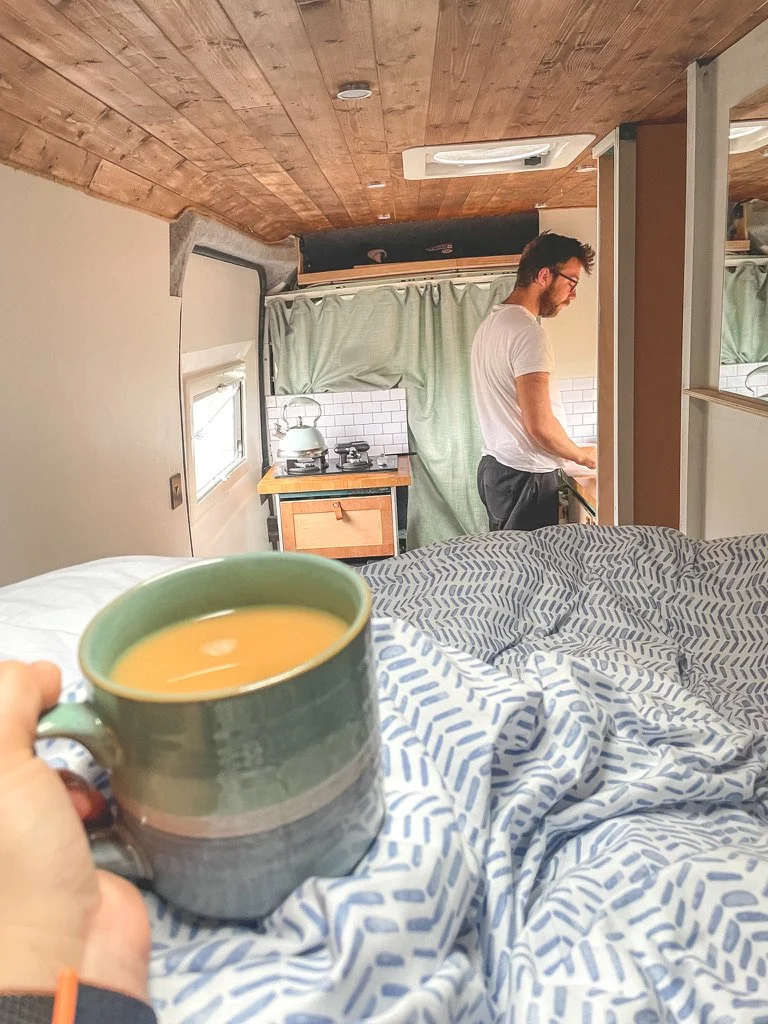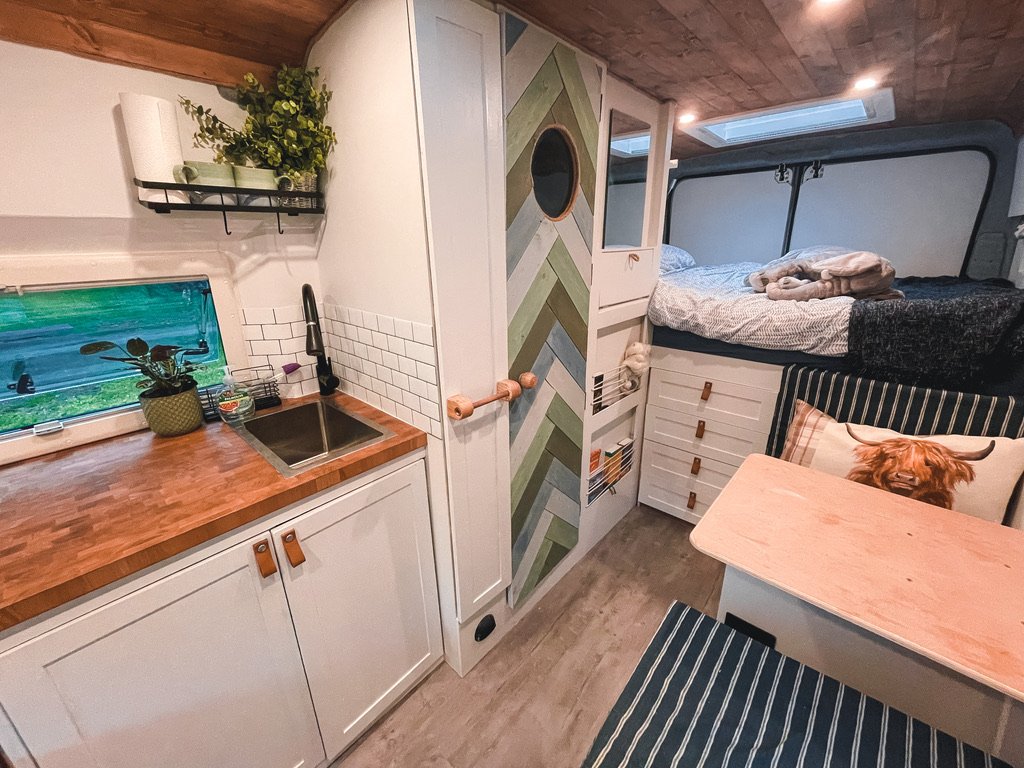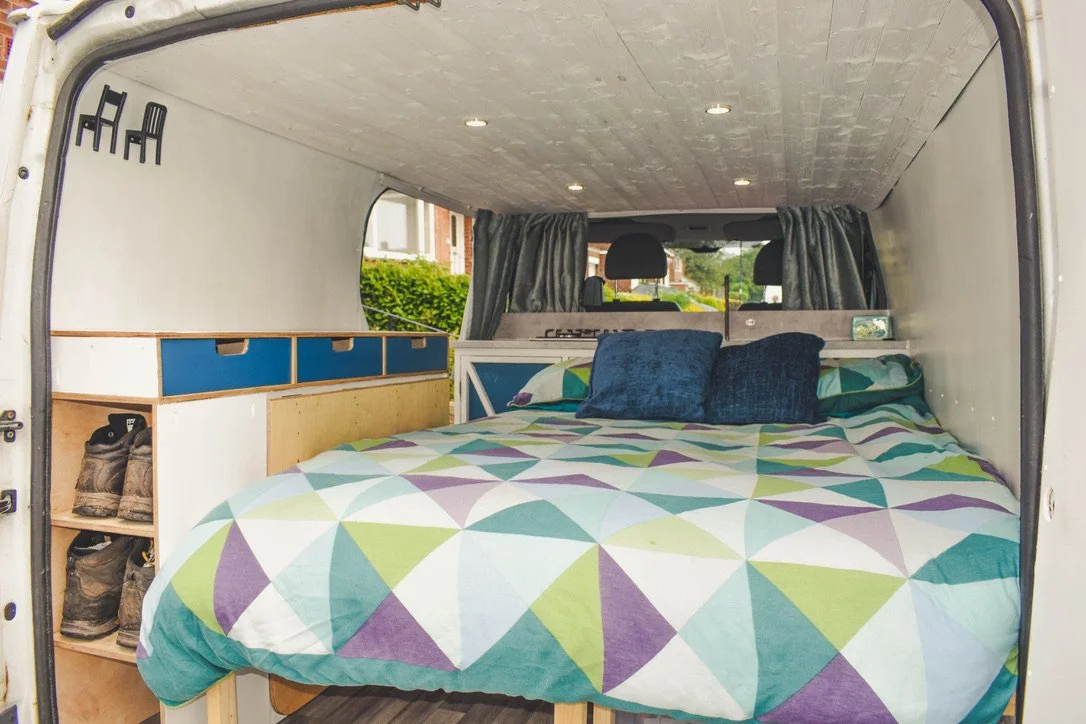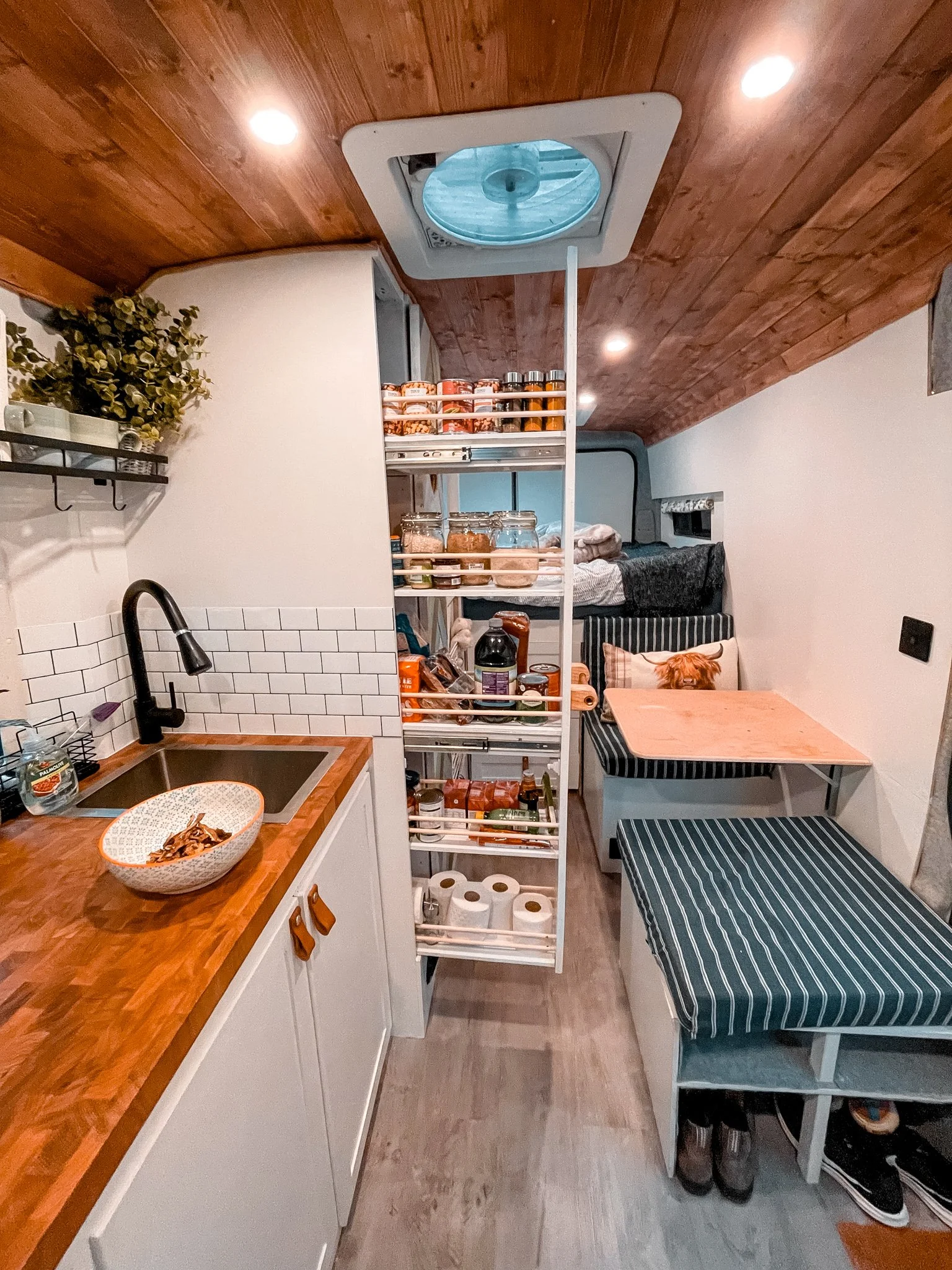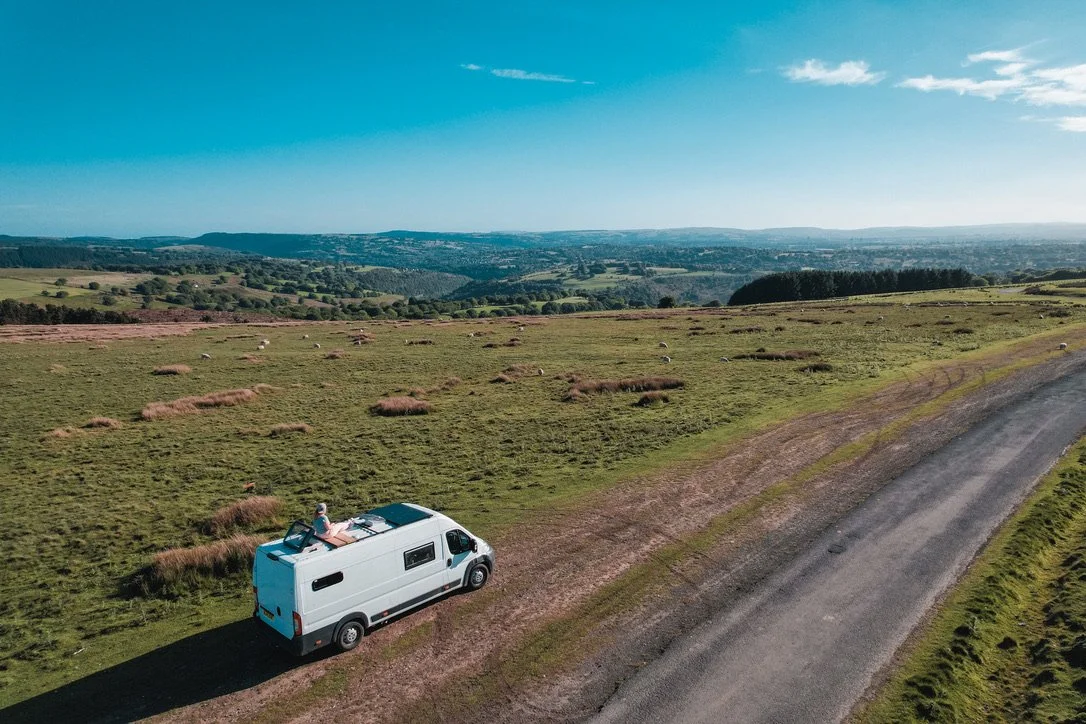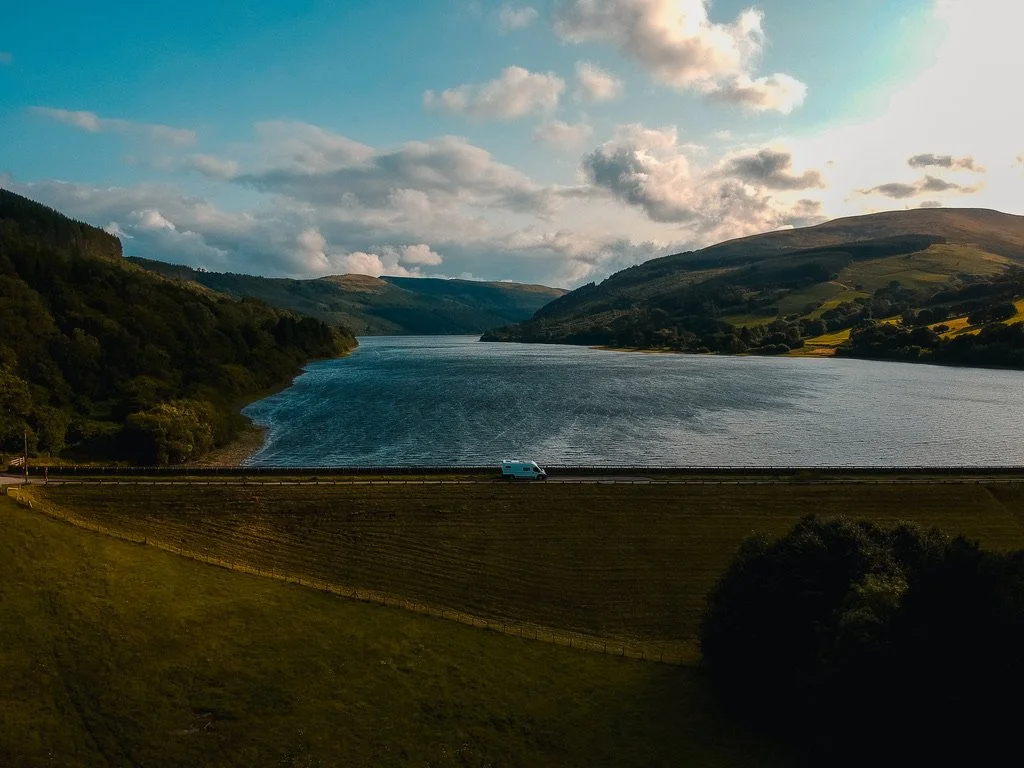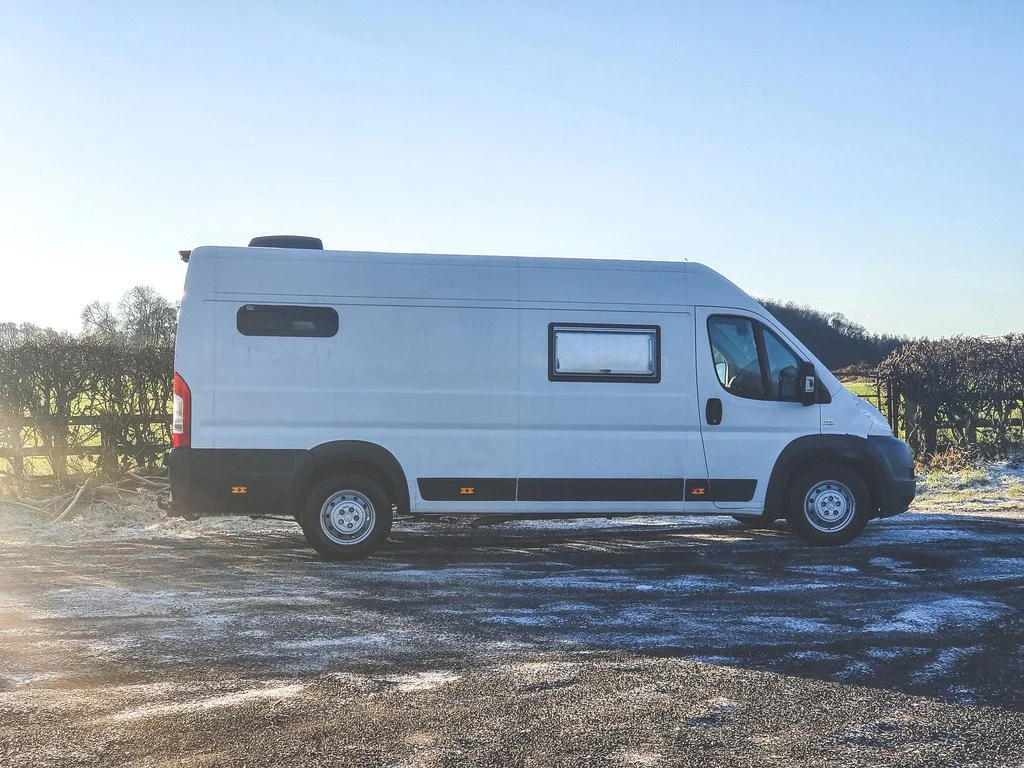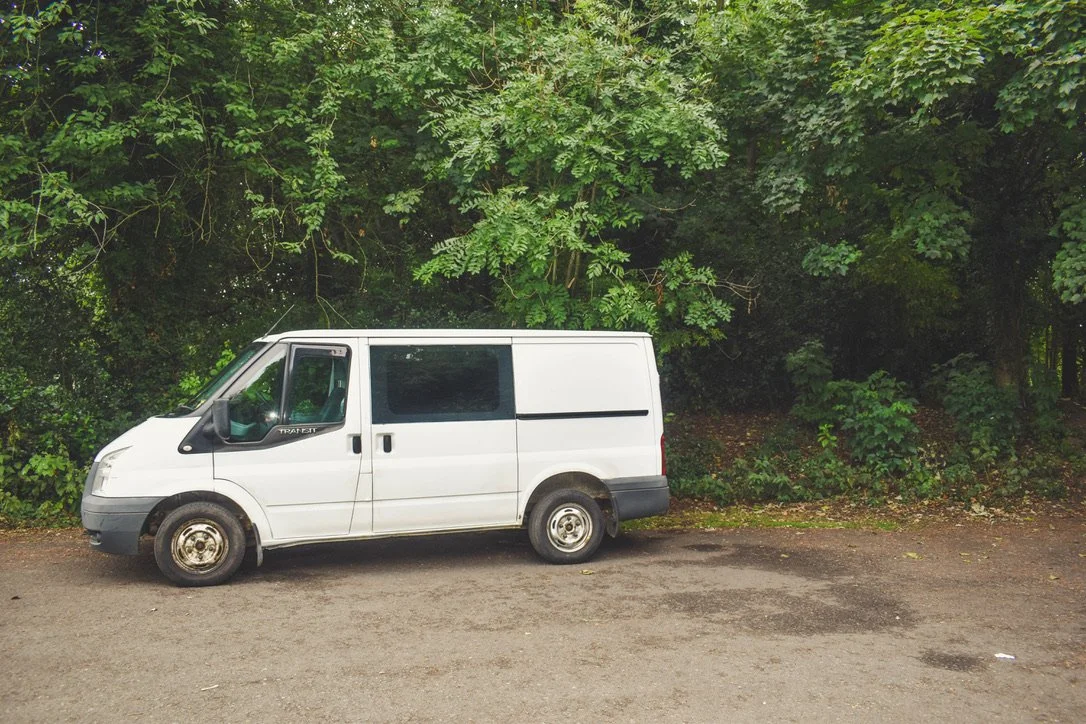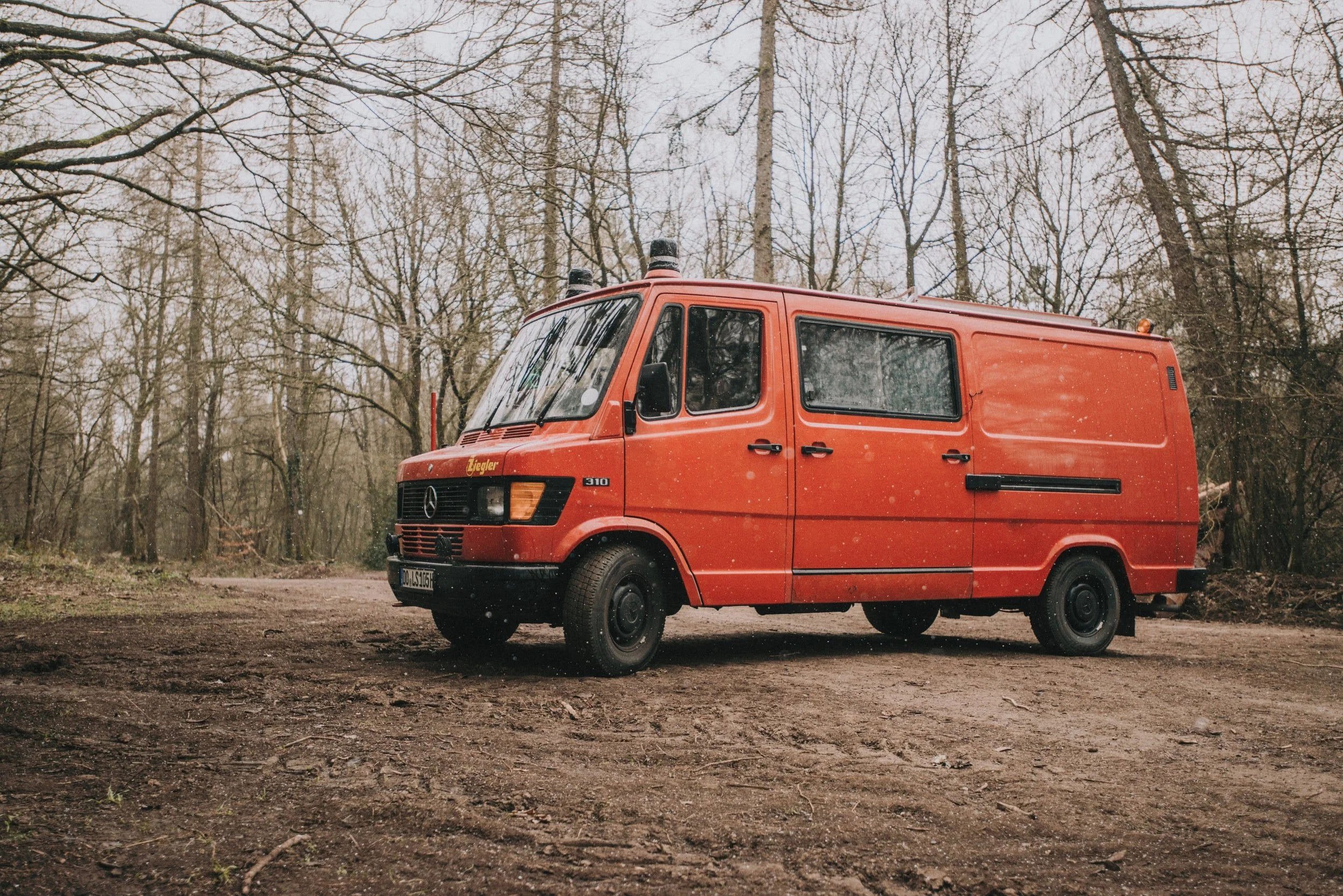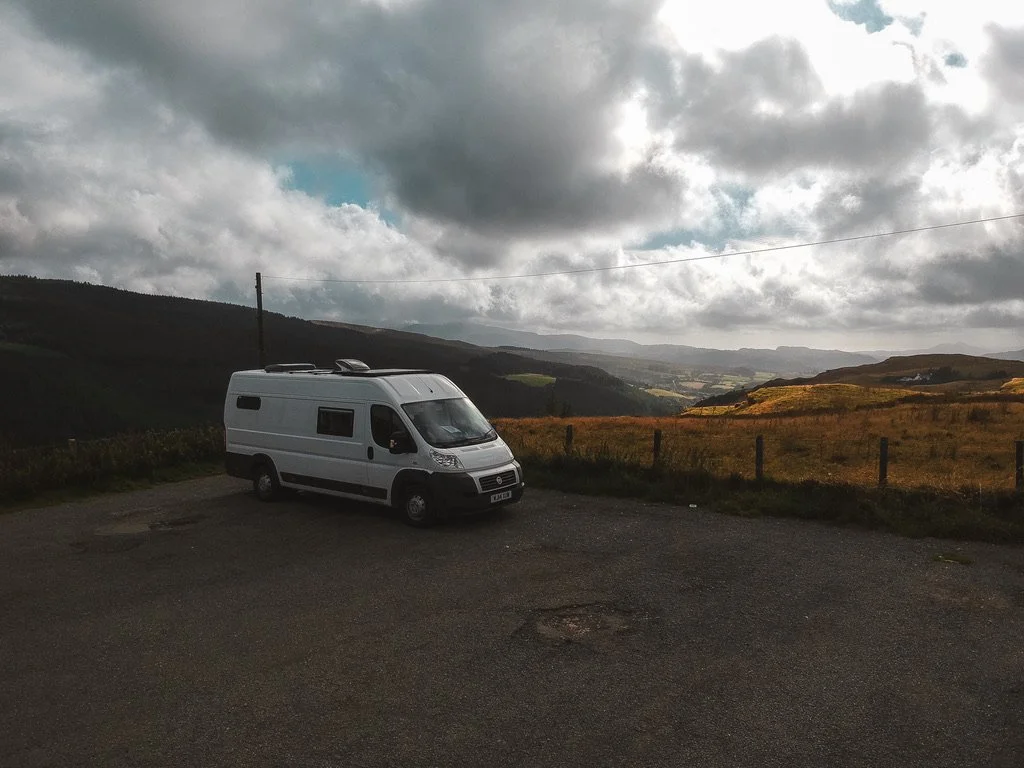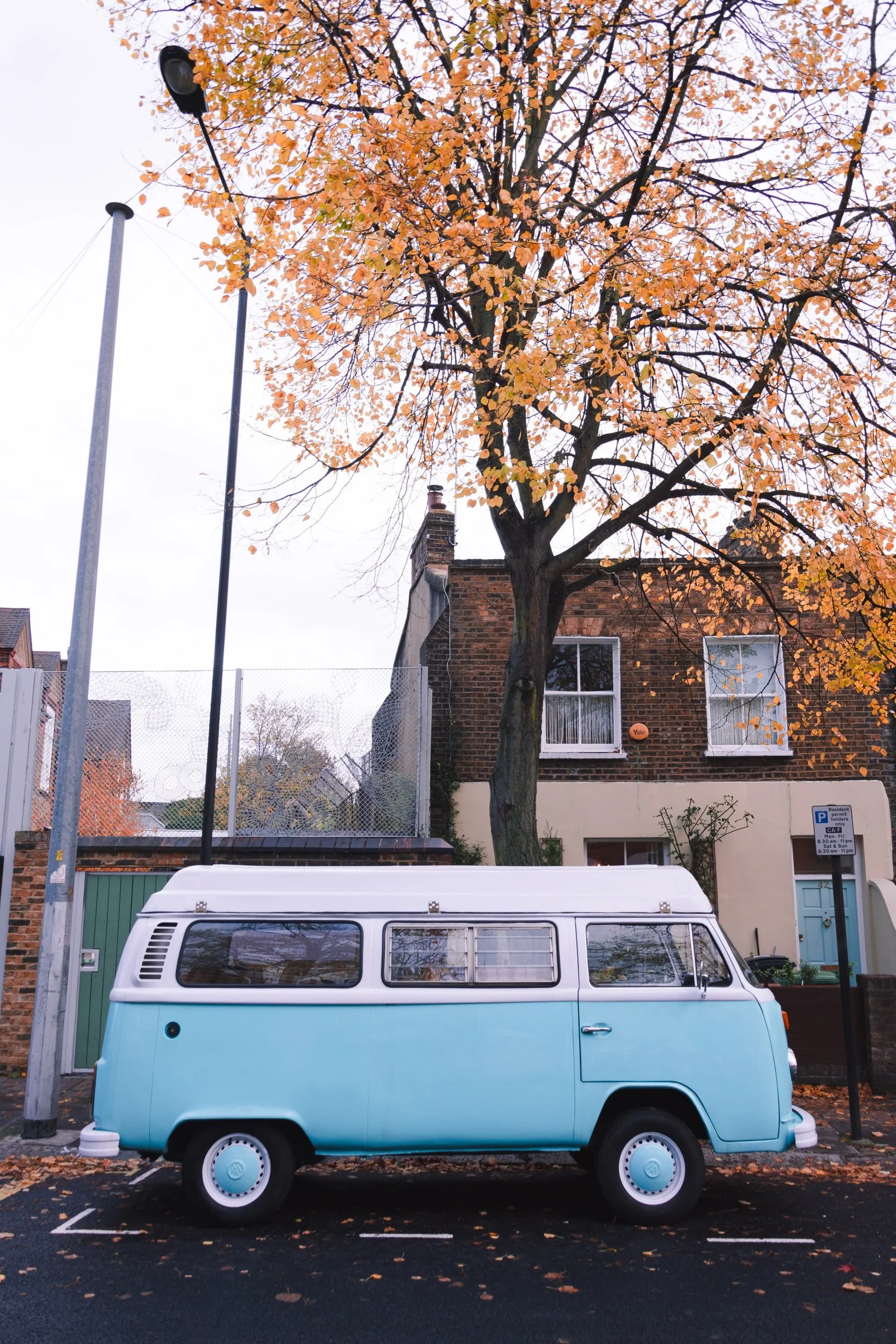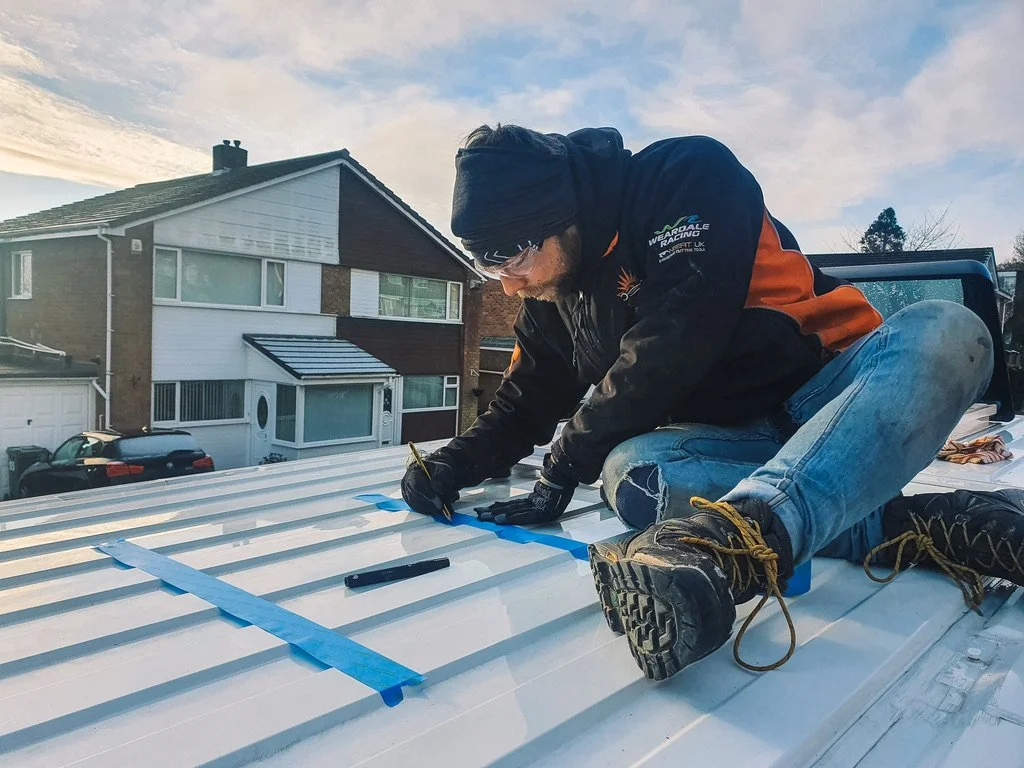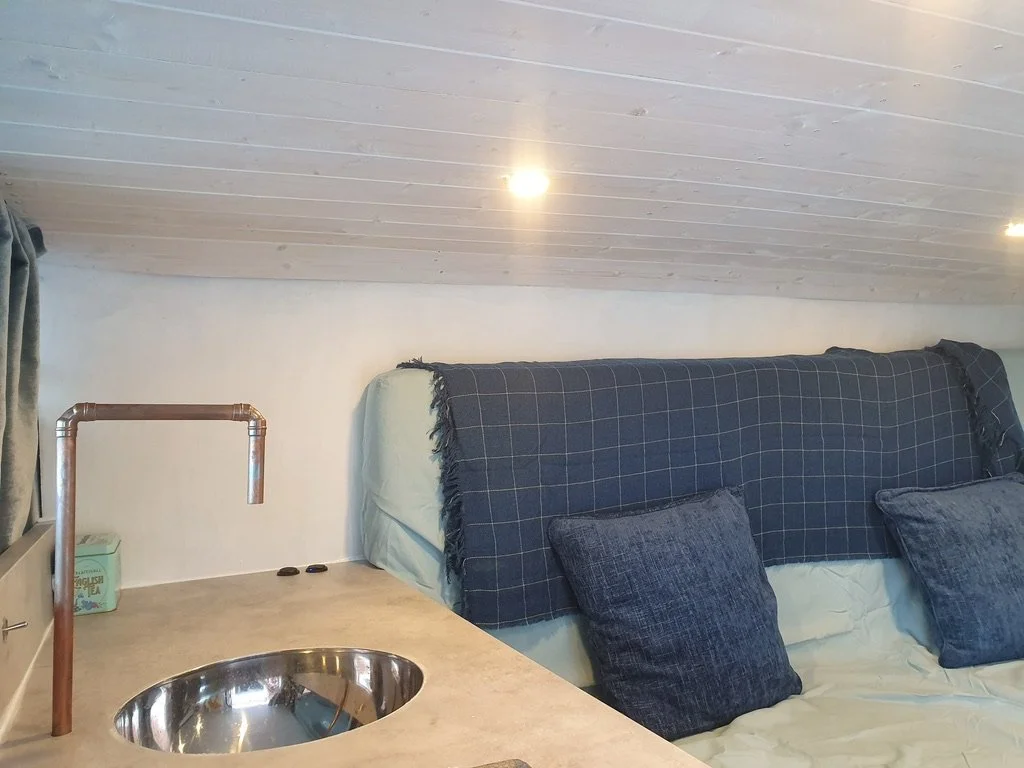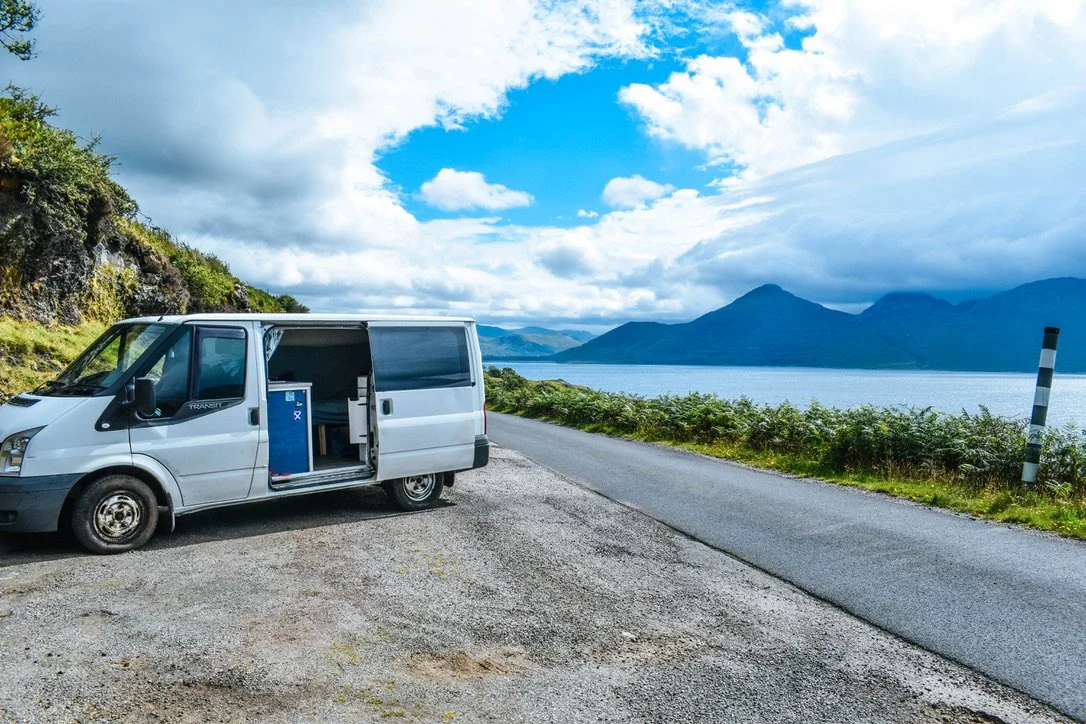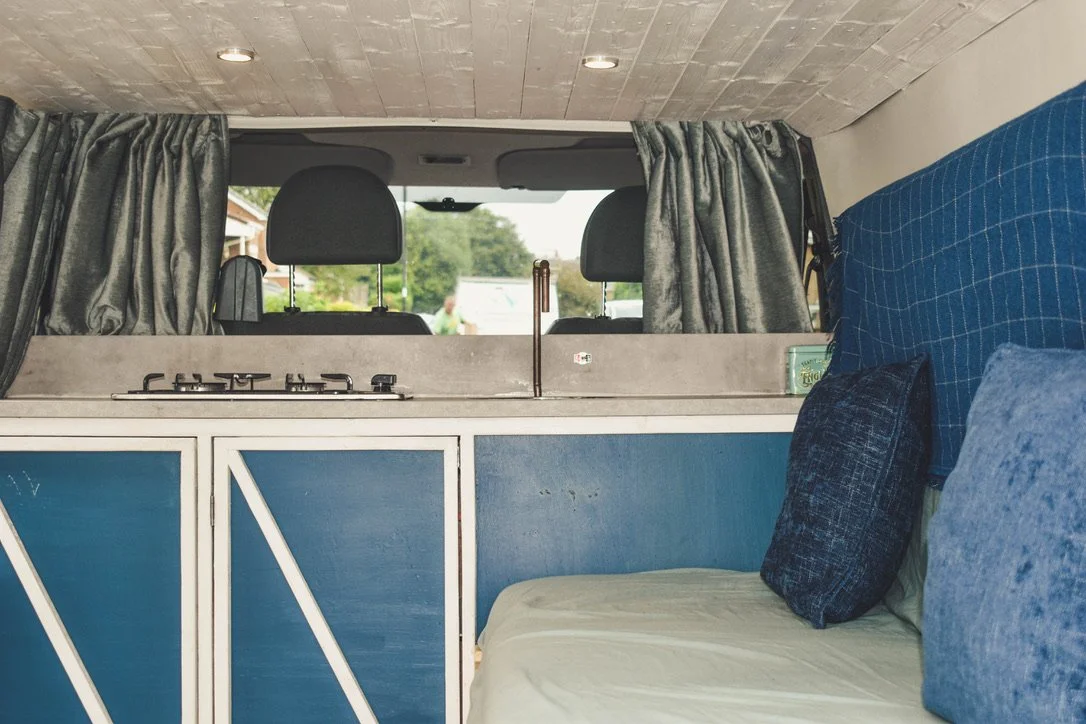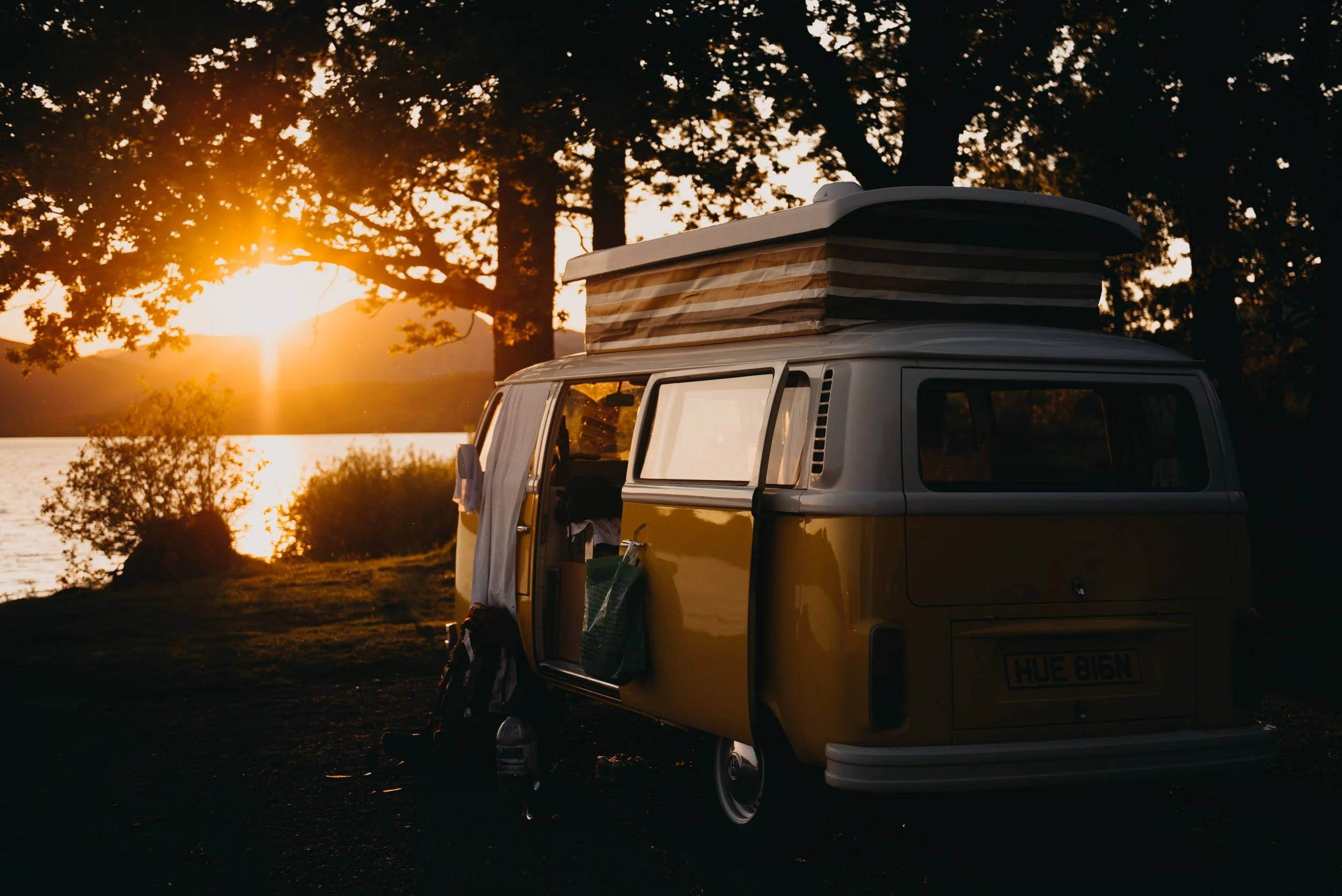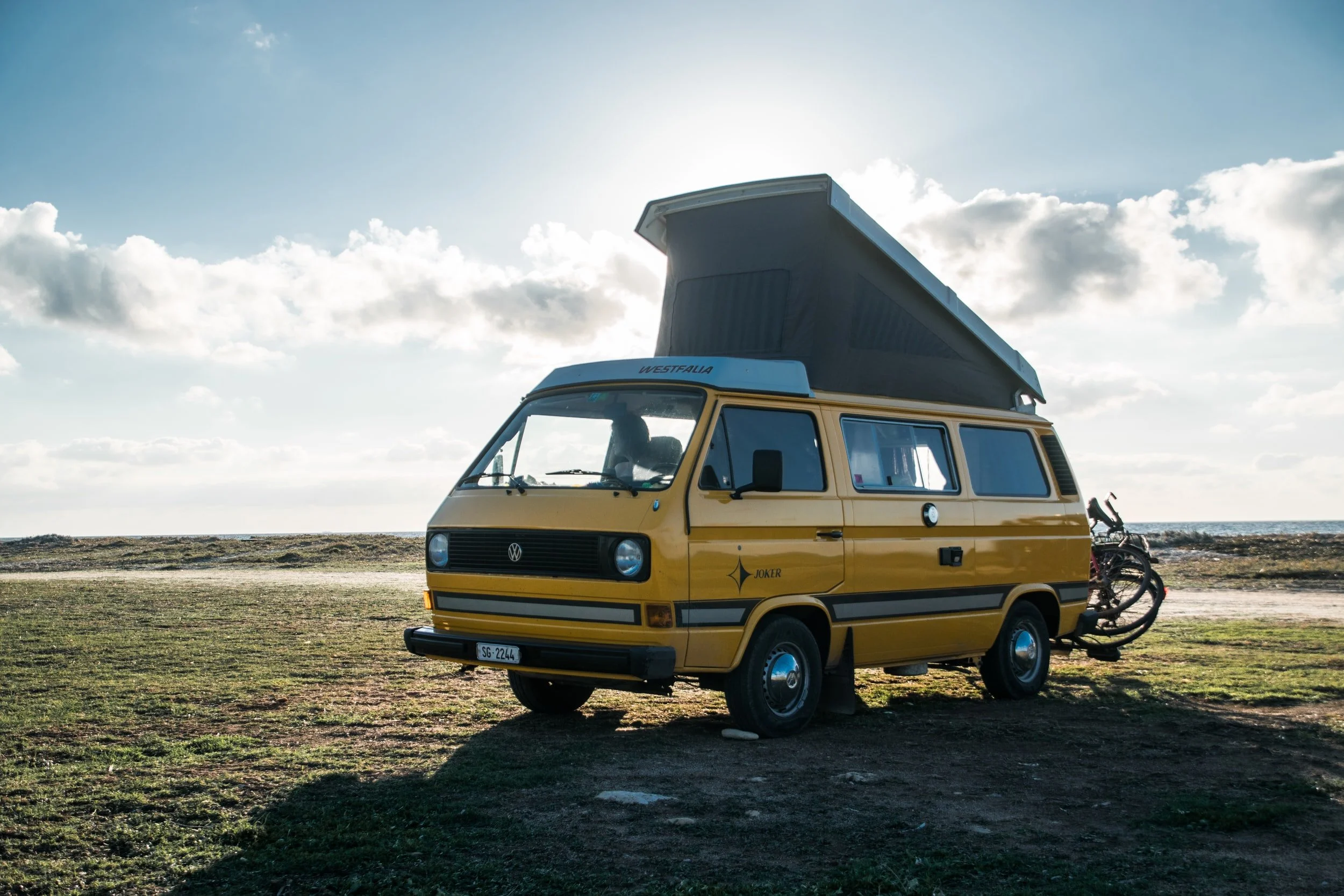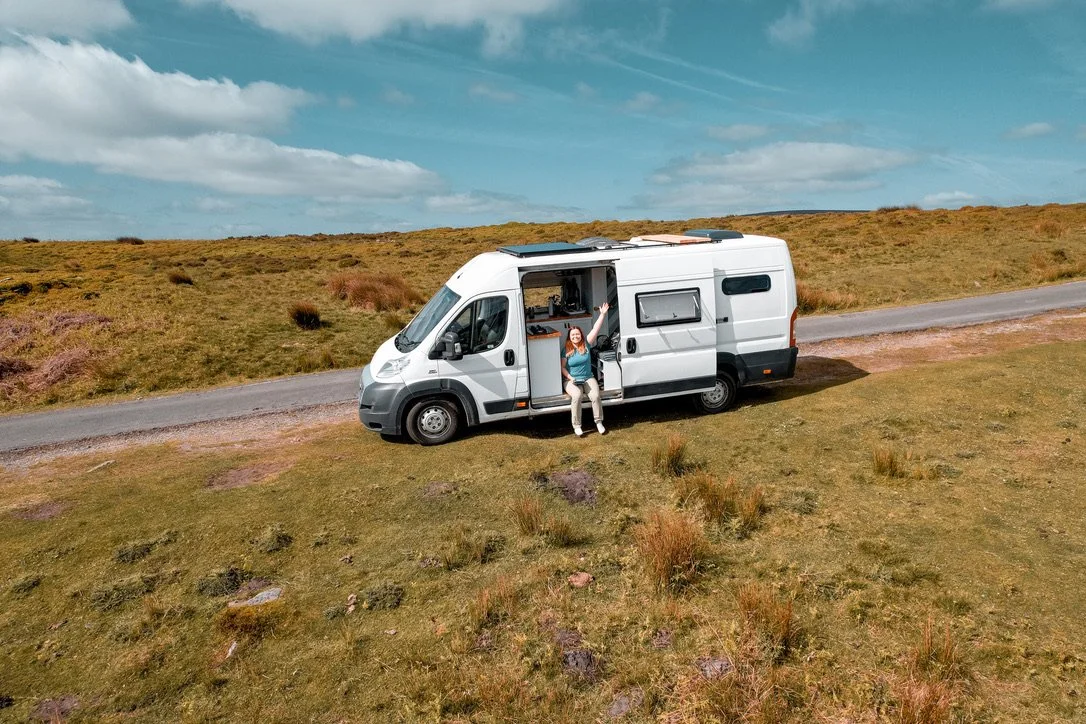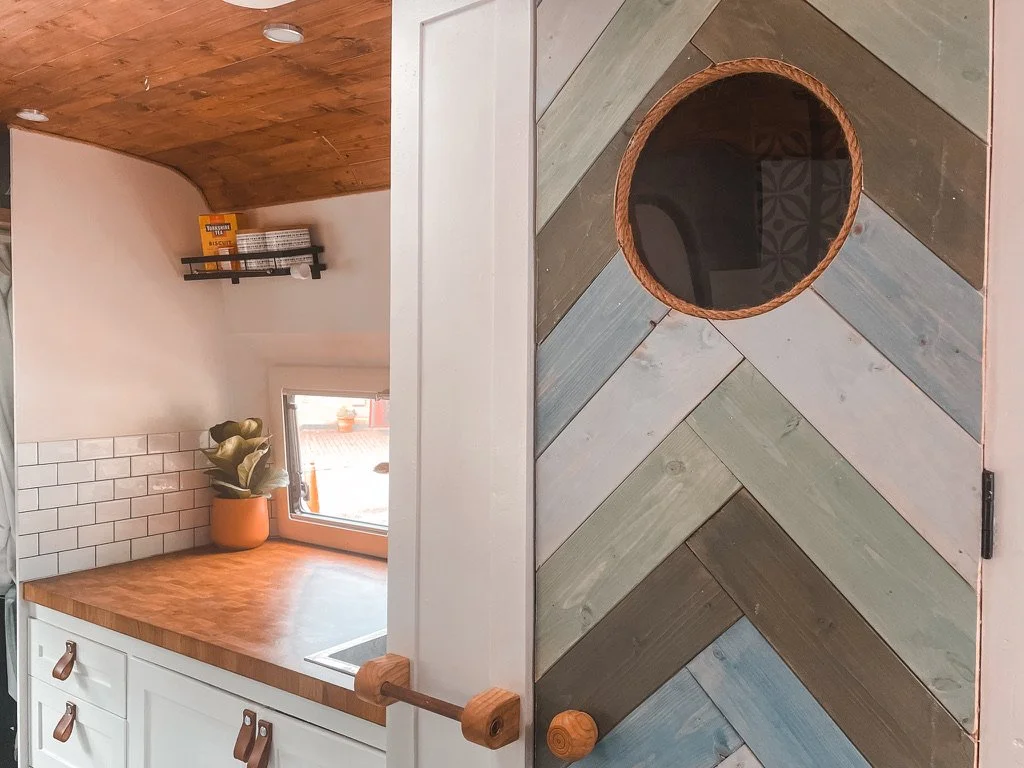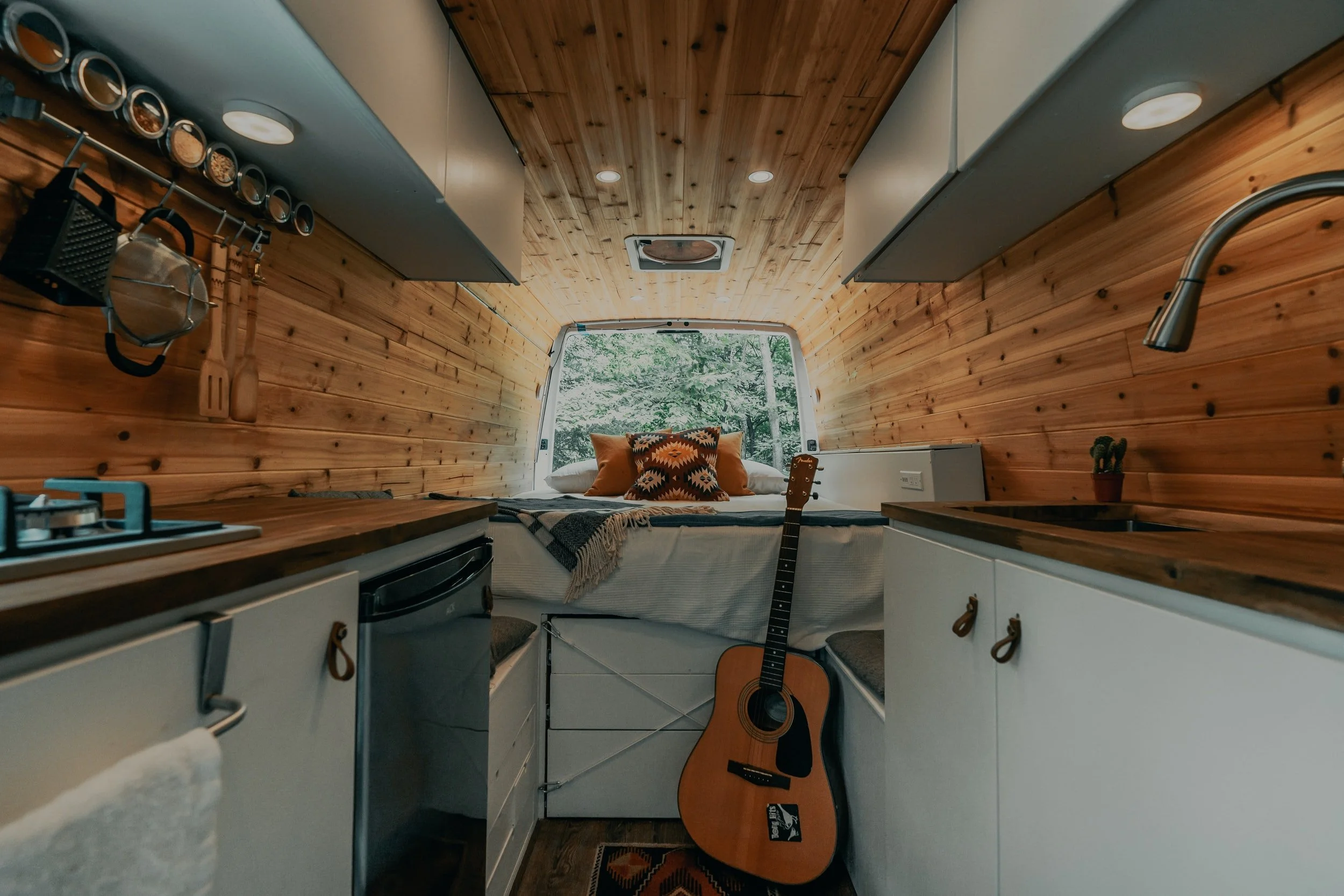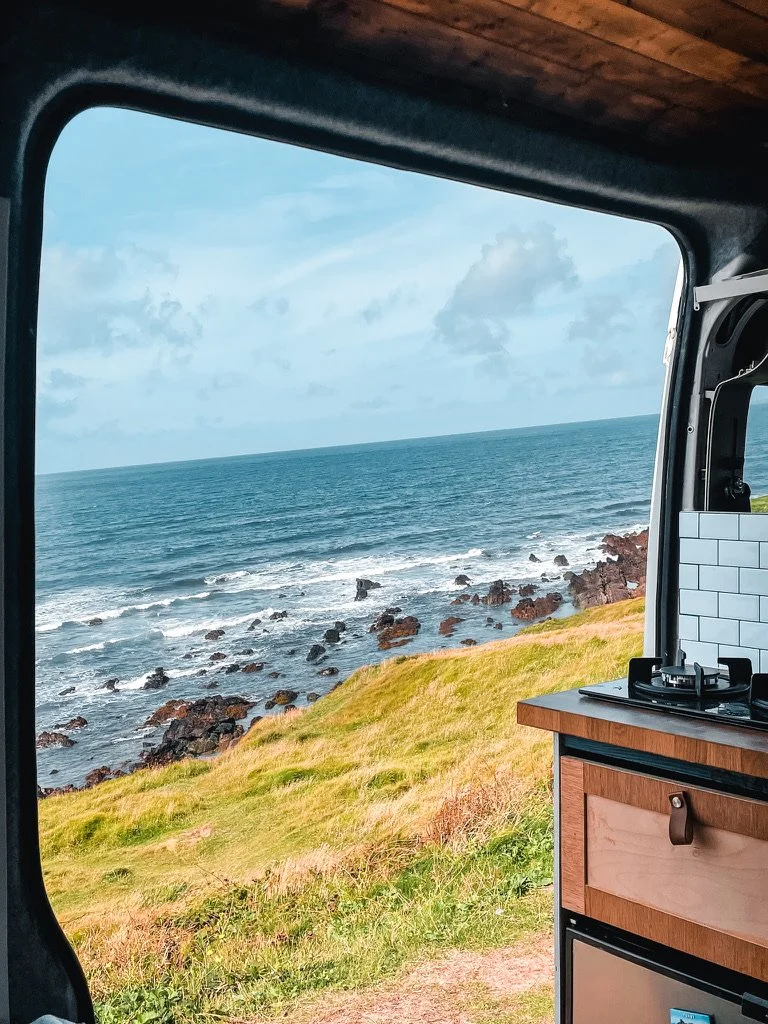Everything to Consider Before Choosing a Van to Convert to a Campervan
Before building a campervan, the decision to actually buy a van to convert is the easy part! We think it’s a really cool thing to do and the thought of being able to drive and stay anywhere we wanted and couldn’t wait
Vans give you the open road, to park nearly anywhere (within the country rules!), to travel with your processions, and have that home space wherever you are in the world
But, what van do you get? That was a difficult decision. We weren't that experienced with vans and although Ed’s passion is cars, he didn’t know an awful lot about vans either, but so much more than me I may add.
But there was so much to consider! Eventually, we decided on a van and see below all the things you should consider before buying a van
Why Build a Campervan?
Campervan vs Motorhome
Why do you need to be building a campervan when you can go out and buy a motorhome? Well! Let me tell you.
If you want to buy a van to convert, you’re looking at a few thousand pounds and maybe up to 8-12k depending on the van, right?
So, call it £2500 for a van, maybe another £2000 to do the inside of the van for a short-wheel based van. Or the other end of the spectrum, 6-10k on a long-wheel based van, and a further 5-6k for converting the inside depending on your spec
If you don't have a very big budget, and you want to spend the same amount of money on a campervan or motorhome, you’ll be able to get a van which is 20-30 years old, severely old fashioned and a heck of a lot of miles.
Therefore, you’ll need to spend money modernising it and still pretty much end up building a campervan. But a little harder. It may be different in other countries but in the UK they’re so expensive if you want a fairly new-ish modern motorhome be willing to spend £30,000 and above.
There are some brand new motorhomes out there which can be bought for around 100k! A hell of a lot of money
Why Not Buy a Caravan?
Caravans seem similar, but theyre actually quite different. There are multiple things you need to consider when buying a caravan. What are you going to tow it with is the main one
But also how do you want to travel? You have to stick to campsites pretty much with a caravan. And when we have stayed in campsites in the past, watching someone set up their caravan for over an hour is pretty tedious
A van you can just pull up and away you go
You Can (sort of) Stay Anywhere in a Van
With certain vans, it isn’t always obvious that it’s a camper when parked in a car park or the side of the road.
In the UK you can’t camp freely or by the side of the road or anything, but in a campervan you can park in free areas often overnight
There are so many apps with free park ups including Park4Night, iOverlander, StayFree and there will be so many more. Our favourite is Park4Night, it seems to have the most spots.
We use it to find free camping spots and it has never failed us yet. On an afternoon, we browse on Park4Night to find cool free spots often with a view which don't have 'no parking' signs, or may be a big layby
Our favourite camping spots were found on Park4Night
What Size Van Should You Get?
When we first started looking at buying our first van in 2017, I thought ‘cool, big van or small van’. But boy was I wrong. There are numerous heights and lengths and variations of them depending on the make of van
Length
You can get short wheel based, medium wheel based, long wheel-based or even jumbo-sized vans or extra-long wheel based. This is literally the space between the wheels and how long the vehicle is.
They can be considered short, medium, long or extra long, but also L1, L3, L3 and L4. L meaning length and 1 being the shortest, 4 being the longest
This all depends on how much space to want inside the van, but also what space you want to park your van when out and about or when working on it. I talk about that further down the post.
Height
As well as different lengths there is a range of heights. Short, medium and high with some makes, but also H1, H2 and H3. There isnt any H4s.
H1s are generally your normal short work man vans, H2 is what a lot of campervans are. Our Fiat Ducato - Dumbo, is a H2 L4. We can stand up absolutely fine. Ed is 5ft 11 I think and he has no issues. When we were looking at buying our bigger van, we looked at some H3s and my hands wouldn’t even reach the ceiling. So an awfully lot taller
You can mix all these things together too. Get a short wheel based, medium roof, or a long wheel based high roof, or medium wheel based medium roof the combinations are endless
I felt the options were endless but it all depends on how popular the van is.
Medium roofed vans are much less popular and when we looked on Auto Trader or Gum Tree there were 4 nationwide. Whereas a shorter roof (H2) there were thousands. And the chances of getting a much better van in regard to rust, age, mileage etc was much better.
When building a campervan you also have to consider whether you want to stand up in it. Of course, you want to stand up in it, but whether the balance between the convenience of the vehicle outweighs an often small inconvenience inside
You can sit down to cook, dress sitting down and you find more imaginary ways of doing things. I think sometimes it is thought you must be able to stand up in the van to be enjoyable but when building a campervan, it depends on what you want to do with it
Windows or No Windows
When building a campervan along with the exhaustion of understanding the heights and lengths you can also get those vans with windows (crew-cabs).
In the UK to register your van as a campervan, there are certain things you must have to be considered as a camper. And a few years ago they changed the criteria to also include ‘looking like a campervan’, whatever that is…
But one of the main criteria is having a window. You can buy vans with crew-cabs which already have windows in, or you can buy a normal van and fit a window yourself.
If you want to buy a brand-new window it may be about £200-£300 per window for a bonded window, we bought ours for our Ford Transit off eBay for only £20, was an amazing deal.
However for Dumbo, we added two bonded windows at the rear and two swing out windows at the front. We spent just over £1000 on the windows for Dumbo… But spending time in him with all the windows, and staring out our bed windows at night is just amazing
Therefore, outweighed the cost of buying a van with windows already in. However, you have to be confident enough to fit one.
Ed did a lot of research and watched a lot of Youtube videos before fitting our window. We were both more anxious than we needed to be and fitting it when surprisingly smoothly and we had no problems with it.
It was actually much easier than we anticipated
Does Your License Allow That Type of Van?
If you have a UK driving license, the chances are you’ve driven a car, maybe a 4x4, because the rest of our licenses don’t allow bigger vehicles unless you take further courses and tests (unless you passed before 1997)
But with these, you can see a lot more in mirrors and windows. A short-wheel-based van feels fairly normal to drive, it isn’t too much bigger than a big 4x4. They come with bigger side mirrors but obviously no rear-view mirror or windows.
Therefore, a long-wheelbase van will generally more challenging to drive especially if you haven’t driven anything of that size before. However, when we have then driven bigger vans compared to our smaller van, it barely feels any bigger
Although you could add parking cameras or sensors, it is still strange to not have a rear-view mirror as you become so accustomed to looking in it.
At first we found ourselves just looking up to the sky all the time and forgetting it isn’t there. But now very used to the visibility with such big mirrors
So it all depends on what you feel comfortable with and your license. In the UK if you passed the driving test before January 1997, you can drive over 3.5 tonnes of vehicle without sitting an extra test
So if you passed your test after then, you have to sit another driving test for a vehicle over 3.5 tonnes
Make sure when looking in the description of the vehicle what its gross weight is. This is how much the vehicle can hold, and your driving license must be able to drive that.
For instance, if you buy a Mercedes Vario, the gross weight is 7.5 tonnes. It won’t weight that, but your driving license must be able to drive up to that weight.
Hope that makes sense!
Where are you Going to Store and Work On It
When building a campervan, you have to consider the storage and where you're going to do the build of your van. Bigger vans take up more space - that’s obvious
Seems pretty straightforward. But if you have a short-wheel-based van, it can fit in a normal car parking space, therefore you can also fit on a drive and also outside your house.
If you have two parking spaces outside of your house a long-wheel based van will take up both of these spaces and do you have another car or two you may want to still park there?
When building a campervan you have to consider where you’re actually going to be able to do the work on it.
If you buy a long wheel-based van and decide to store it away from your house, are you going to be able to use tools there? Is there space around it if it's stored in a big garage?
Can you run extension leads for power tools or lights in the dark? You want to be able to work on your van as accessible as possible.
When we converted our small Ford Transit we managed to reverse it onto our extremely short (smaller than normal) drive in front of our garage. It just went onto the pavement, but we could still convert it in the rain
When buying Dumbo our Fiat Ducato (H2 L4), we stored it on the road for a while, and then purchased a small bit of land at the side of our house
It was dangerous storing Dumbo where he originally was as cars couldn’t see when driving into our street properly, and neighbours could get into their cars properly either
What Make and Model of Van Do You Want?
Can we just make a point now. Mercedes Sprinters are the most popular large vans in America, because they are the only van you can buy as a diesel there. It DOES NOT make it the best van
I feel this is spreading to over here without people doing their research because in the UK, we have the privilege of having a large range of diesel vans which we consider to be better
A Ford Transit
These are by far the most popular type of small van out there, and I think it’s simply because they’re cheap and therefore there are loads of them.
However, are they cheap because there is a lot of them or there’s lots of them which makes them cheap? Or are they actually good vans? Since we bought a ford transit, the choice and range of them was massive. From age, mileage, and any work they had had done.
But one thing which is common with these is that they rust fairly easily. We thought that if they had work done on them at an earlier age they didn’t seem to have as much rust. As normally rust you can’t really fix without an awful lot of work, but mechanical issues can be fixed much easier.
They also come in their own range of sizes, from low, medium and high roofs, and regular, long and extended wheel base
A VW Transporter
A lot of people buy these to convert to a campervan. I think it comes from the classic VW campers and they do look cool.
However, they are so overpriced for what they actually are. When doing research into vans it seemed you could spend a good £20,000 less on a ford transit in comparison to a VW Transporter for the same age or similar mileage van, and think this was literally due to the branding.
The choice is up to you and they do hold their value quite well. But we honestly think they are such a waste of money. A vintage one, absolutely. But the new ones are really small, even with a pop top roof, and just feel like you can get so much more van for your money
The majority of already converted campervans are usually VW Transporters but you could easily pay 40k for one or these days, even more
They’re not particularly big, but you can add a pop top for some extra space
Mercedes
The Mercedes range includes the Sprinter and the Vito. The Vito is a similar size to a ‘regular’ transit and can get it in varied sizes.
With the make being Mercedes for either the Sprinter or the Vito, you’re going to spend a few thousand pounds more for the simple fact it’s a Mercedes, which personally we don’t see the point.
A Mercedes Sprinter seems like the go too for many when looking to convert a large van. But this is because you cant’ buy any other diesel van in the US of this size there just isn’t any other option. But there is multiple downsides to a Sprinter we think you should consider
The main one, is we think people don’t always realise you can’t have a full length bed horizontal, therefore taking up a lot more space in your van. Or if you do, they’re shorter and for us, would feel too much of a compromise to not have a comfortable bed
Vans which are 10cm wider (Ducato, Relay or Boxer), you can achieve more livable space because you can have a full size bed sideways
Sprinters can be a good choice as they seem reliable good vans. But overpriced and not as much liveable space which we consider more important. Replacement parts can also be more expensive due to the Mercedes badge
Fiat Ducato, Citroen Relay and Peugeot Boxer
These models of van are literally the same van underneath. They are all 10cm wider than normal larger vans and can easily achieve a full size stationary bed across a van (190cm)
The Fiat Ducato has a good reputation for the better engine out of the three but we think they’re all pretty similar
The issue with these is because they are wider they are generally more common to buy and not as available. For our second campervan build, we bought a Fiat Ducato H2L4 for the most living space
We were originally looking for a H3L4 but they were really rare, and when we went to view one we realise we didn’t need one that big. I couldn’t reach my arms up to the ceiling! Therefore more money in wood, insulation etc and converting it
Quality of the Van
Buying any vehicle is trying to get the best quality vehicle for the money right?
Vans always have scraps and dents, they often have a lot of miles due to the nature of their previous life and they might not be perfect
But what do you find more of a priority? Cost takes up a big portion for that, but does mileage matter so much as compared to a car if it has been well looked after with a good amount of service history?
Vans are usually diesel so can generally get a lot miles for your engine. We buy up to 150k miles in vans, because its a van and its robust right?
Where Do You Want to Park It?
Length
When considering buying our first van, our priorities were maybe a little different to what they are now.
We wanted the convince of being able to park the van in a normal car parking space, to be able to take it into cities if we wanted and maybe even the availability of parking it in a multi-story car park.
We could visit busy tourist attractions and not take up much space, and to be honest we laughed at those big motor homes who got stuck for being so stupid bringing something so big into a small car park
But once we had used our Ford Transit for a year or so, we wanted bigger. And the main thing that put us off getting a big van to begin with was the accessibility and the parking of it when out and about
When buying Dumbo, it was always the plan to be able to fit a motor bike under the bed at the back of the van. We could park the van further away, and drive in. But not have the stress that someone was going to steal it when on the back. That is why we were originally looking at H3 vans. We sat under our desks in our home office to simulate the height of the bed vs the ceiling in a H2, because we just couldn’t find any good H3 vans
We park Dumbo now at the back of car parks, further away and walk (because when i’m writing this, we haven’t sorted our bike rack out yet!), because Dumbo feels reasonable in size, but as soon as you’re in a small car park, wow you’re big
A short-wheel-based (L1) van is the only van that will fit in a standard length space in the UK or Europe. A medium-wheel base or longer will not fit in a normal length space.
If you have restraints on parking, then a short-wheel-base is for you. But if you aren't too fussed, then you might as well go all out
Different countries have different rules, but if you can't fit in a normal space with a medium van, why not just buy the bigger van. More livable space and you will have to park somewhere slightly different anyway
Some places have a motorhome or larger vehicle parking areas, or parking alongside the road. It's something to have to think more about when in a larger van but shouldn't hold you back
Height
Some car parks, drive throughs, park ups have barriers. Often 2m barriers. Dumbo who is a H2 is 2.5m tall. Its something to consider rather than just driving somewhere and expecting you can park without any problem
Similar to what I was saying above, if youre going to get a slighter higher van where you can’t park in a usual space e.g a medium roof, why not just get a higher roof if buying something like a transit because you would have to park elsewhere anyway
On apps like Park4Night, it will usually have on the description if there is a height barrier, which is always useful. But you do have to plan where you’re going to park a lot more
Inside the Van
The Bed
Do you want a permanent bed? Do you want a sofa that pulls out to a bed? So if you’re thinking of a permanent bed, it means you’re going to have to have a bigger van
Across the Van (horizontal)
Due to the width of a bed, consider whether we would be able to lie sideways in the van. Normal vans, apart from the Fiat Ducato, Peugeot Boxer, and the Citroen relay, you must have the bed lengthways to achieve a full-size bed (190cm)
We've read a lot about lengthways or horizontal beds and the compromise you could make by lying slightly diagonal. But, most people over 5 foot 5 would struggle or have their feet right against the side
People do this all the time to get extra living space, but the main pro of a stationary bed is that there isn't a compromise. So why sleep uncomfortable?
When considering the internal width of a van, remember it is before you have added insulation and wood
Lengthways
Having the bed lengthways may give you slightly less living space, but you gain space on either side of the bed. Some use this for extra clothing storage or laundry storage and isn't lost space
In vans such as a Sprinter, to achieve a normal size stationary bed you have to have it lengthways down the van, which may restrict your living space a bit, but depends what layout you want!
Sofa/Dinette to Bed
Choosing how to have your bed is one of the biggest choices when doing a van build. Personally, we always want a normal size bed without the compromise.
In our Ford Transit we had a pull out bed but one of the major contributions to building a bigger van was to have a stationary bed
We loved that our seating area was so comfortable because it was a mattress. We bought an IKEA foam mattress for £90, unzipped it, cut it down the middle and rezipped it so it folded.
Our seating area was amazing as could have a great comfortable seating area as well as a full size bed
In larger vans, you can have a similar thing. The bed may flip out, pull down or anything else you come up with. Many people have a large seating area around a table, the table can then go down, cushions rearranged, and then make the bed!
The opportunities are endless
When choosing your bed, I think you have to consider how well you know yourself. If you had a dinette style, or a pull down sofa but in a larger van, will you always put it away? Or are you a little lazy sometimes?
Ed and I know for a fact if we had a dinette we would hardly put it away, because making the bed every single night would be a big pain
We had a pull out sofa to bed in our transit because we didn’t have many other options, so had to open it and put it back. But the sheet also remained so just had to pull out the duvet from under the end of the sofa
Cooking In a Campervan
Cooking Inside
Buying our first camper we knew we wanted the ability to cook inside. During our Iceland roadtrip, we cooked everything outside. Although it was great, if the weather was rubbish it was quite hard to cook
We wanted the ability to cook inside the van so had a mini kitchen, which was actually quite big to do all of our cooking and washing up
Due to the height of the van, we sat on the sofa to wash dishes and sat on our cool box to cook and it worked just perfectly.
In Dumbo, we have a full height kitchen, a small sink, and lots of work top space which is just amazing to cook in. It doesnt feel any different a home kitchen
We had 2 ring hob in both vans and that was all we ever needed. One ring which we used in Iceland on a camping stove was never enough
Ventilation in the Van
When cooking inside, and keeping gas, then you have to ventilate your van properly.
Cooking with windows or the door open gives great ventilation when cooking and making sure all the steam goes outside.
The gas in our Ford Transit, was stored in a sealed box with a floor vent. Because the gas is heavier, if there were any leaks, the gas would drop through the floor! We also had a carbon monoxide alarm too so cooking inside was pretty safe!
In Dumbo we have an underslung gas kit, which, although was a bit a bit pricey, it is outside of the van and we can fill up LPG at some petrol stations
Outside Cooking
Not wanting to cook inside? The kitchen area takes up a lot of space inside a van and if you're wanting more liveable space or a smaller van then you could always cook outside
There are options of a cooker that pulls out at the back, or by opening the back doors, the back is the kitchen area. You could also use camping stoves or other camping equipment such as BBQs!
Things to Consider About the Vehicle
Just like buying a car, you need to be aware of the mileage, the age, any rust which is inside or on the outside.
Rust is fairly difficult to fix once its rusted unless you spent lots and lots of money, and especially after you’ve converted it. So thoroughly check the van over before buying it
We also find a lot of people pay a lot more for vans with lower mileage but with vans being diesel. They generally have a lot more miles on them compared to cars and if you look after it well, you shouldn't have many problems. It’s a van!
When we first decided to buy a van, my mind was blown by the things that needed to be considered and the type of vans you can get. My suggestion is that you can’t have everything, a shame, I know.
But you have to think about what you may want more than other things in order to decide what type of van you want to buy. And be realistic with it too! Convenience? Lower cost? Reliability? What you can do inside? Where you want to fit outside? But have a good think about it first before jumping into buying a van.

